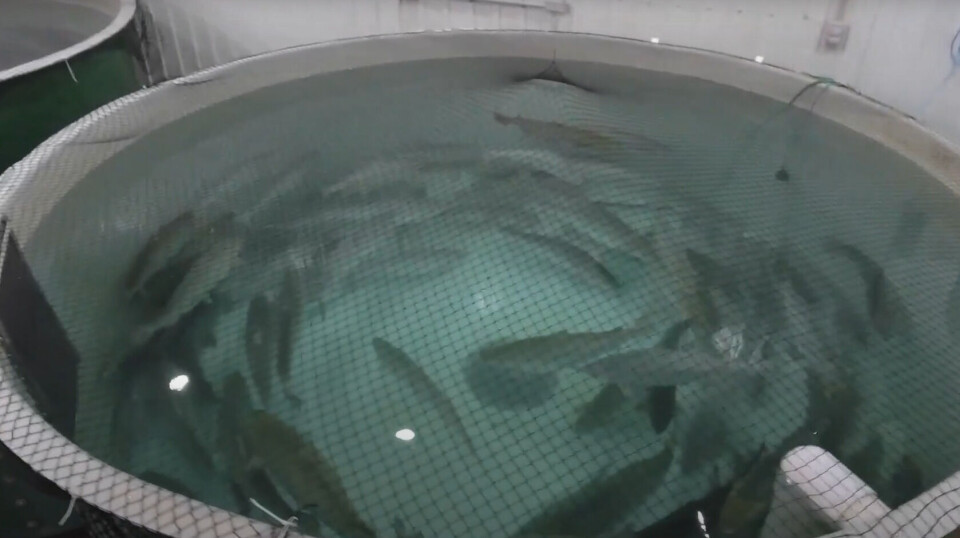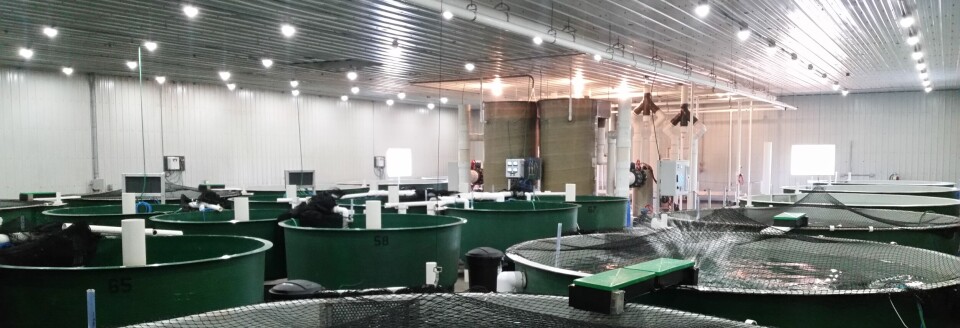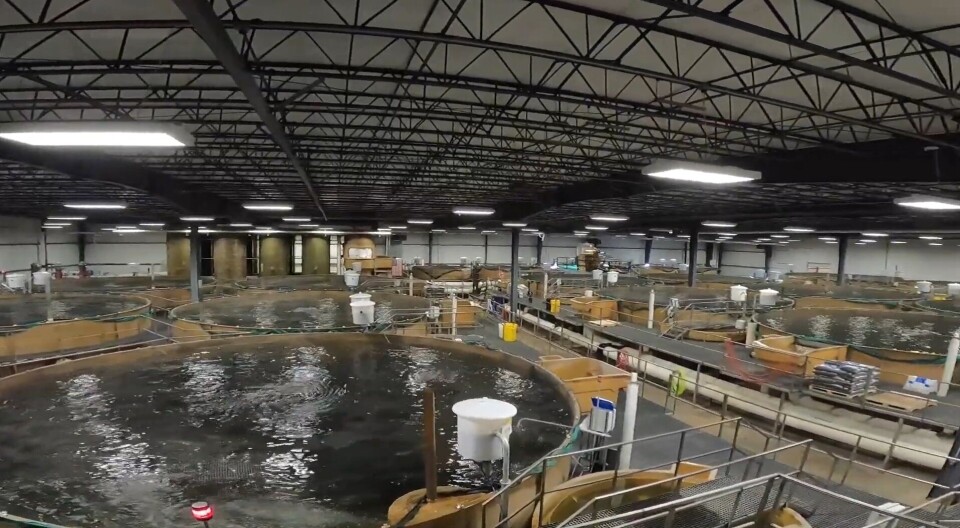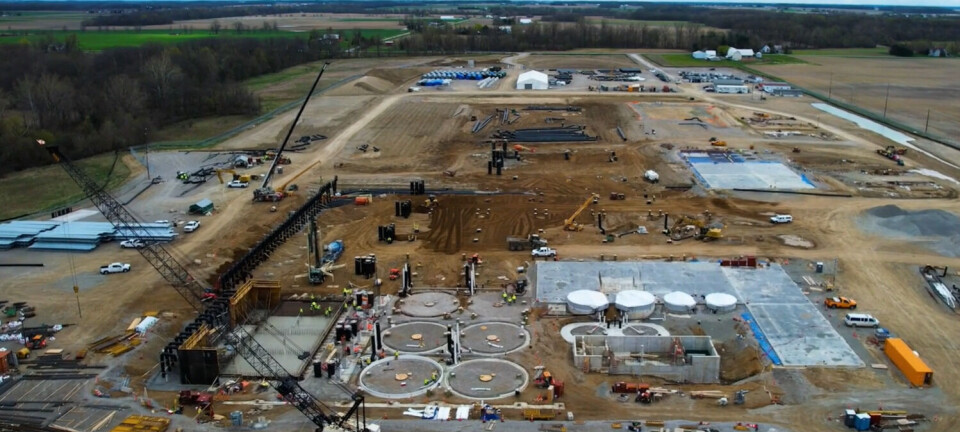
AquaBounty admits defeat in battle to keep farm open
CEO quits, executives lose jobs and fish are culled as money runs out for GM salmon pioneer
Financially troubled salmon farmer AquaBounty today announced that it will immediately begin to wind down its hatchery operations in Bay Fortune, Prince Edward Island, Canada, including a reduction of its workforce and the exit of several senior management members.
Bay Fortune is AquaBounty’s only remaining operating farm. The wind down will include the culling of all remaining fish and a reduction of substantially all personnel over the course of the next several weeks, said David Frank, the company’s chief financial officer and interim chief executive.
“We prioritised maintaining operations at the Bay Fortune facility, but do not have sufficient liquidity to continue to do so. We have been working for over a year to raise capital, including the sale of our farms and equipment,” said Frank in a press release.
“Unfortunately, these efforts have not generated enough cash to maintain our operating facilities. We therefore have no alternative but to close down our remaining farm operations and reduce our staff.
“Dave Melbourne, our chief executive officer, has voluntarily resigned his position with the company, effective December 6, 2024. Additionally, Alejandro Rojas and Melissa Daley, our chief operating officer and chief people officer, respectively, have departed with the elimination of their positions.
We have no alternative but to close down our remaining farm operations and reduce our staff.
Acting CEO David Frank
“Over the course of the next few months, we will continue to work with our investment banker to assess alternatives for our Ohio farm project, and we will continue to market and sell available assets to generate cash. We will keep all stakeholders apprised of our progress.”
AquaBounty produced AquAdvantage salmon, a quicker-growing strain of Atlantic salmon that inherited a genetic modification through the male line. The company - which has consistently lost money - was only allowed to grow the GM fish in escape-proof land-based RAS facilities.
The company operated a RAS facility with a capacity of 1,400 tonnes at Albany, Indiana, and was constructing a larger RAS facility in Pioneer, Ohio, which was put on hold as costs spiralled.
Selling the family silver
In April, AquaBounty mortgaged half the Pioneer farm against a $10 million loan to raise cash for working capital and buy up an existing debt. In July, it sold the Albany farm to Wisconsin-based salmon and leafy greens producer Superior Fresh for a bargain basement price of $9.5m, and in September it announced that it had agreed the sale of its Rollo Bay farm, PEI.
AquaBounty has not said whether its genetically modified salmon line be maintained - perhaps by freezing milt - despite the fact that the broodstock will be culled.
The faster growth - from egg to harvest in 18 months - was a side effect of a modification carried out more than 30 years ago in an effort to make salmon better able to withstand super chill events in Atlantic Canada.
Fish Farming Expert has asked AquaBounty whether the modification can be re-made from new, and whether the modification is the company's intellectual property.


